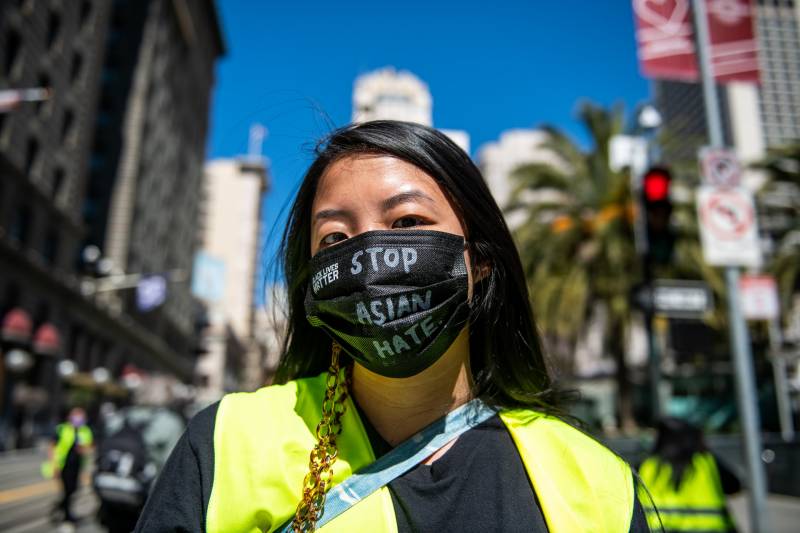“There was a surge in anti-Asian violence correlated with the words of leaders who sought to divide us when we were at our most vulnerable,” said Bonta, a Democrat, in an apparent reference to former President Donald Trump.
Violent crime incidents driven by anti-Asian hate increased from 32 in 2019 to 72 in 2020, according to a companion report that aims to put that violence into modern and historical context dating to the Gold Rush days of the mid-19th century.
California defines hate crimes as those targeting victims because of their race or ethnicity, nationality, religion, sexual orientation, gender or disability. The definitions have been expanded at various times in recent years. Each hate crime event can include more than one related offense against more than one victim, and by more than one offender.
Such crimes targeting Latinos increased from 110 in 2019 to 152 last year, while those against white people rose from 39 to 82.
While hate crimes based on race increased, those prompted by religion dropped 13.5%. Anti-Jewish incidents fell from 141 in 2019 to 115 in 2020, and anti-Islamic incidents decreased from 25 to 15.
Those involving sexual orientation fell from 233 to 205. However, those with a gender bias increased, led by a jump in anti-transgender incidents, from 29 in 2019 to 54 last year.
Though Bonta noted that more than half of hate crimes are believed to go unreported, he said he has confidence in local investigators and prosecutors to address the problem.
He nonetheless distributed a new law enforcement bulletin and guidance for prosecutors intended to help them identify and investigate hate crimes, increase immediate and consistent contact with victims and their communities, and promote alternative forms of sentencing and restorative justice approaches when dealing with perpetrators.
Carl Chan, president of Oakland’s Chinatown Chamber of Commerce, praised Bonta's office for also releasing updated brochures in 25 languages advising victims on how to report hate crimes and seek assistance.
Chan, who was attacked from behind and knocked to the ground in April, said the brochures will help spur more reporting of such incidents.
Chinatown has seen a decrease in visitors amid anti-Asian rhetoric, said Oakland City Councilmember Sheng Thao. "People are fearful of walking the street.”
Gov. Gavin Newsom said he is seeking $300 million to address hate crimes, with one-third going to support victims and the remainder for community-based responses.
KQED's Emily Hung contributed reporting to this post.
